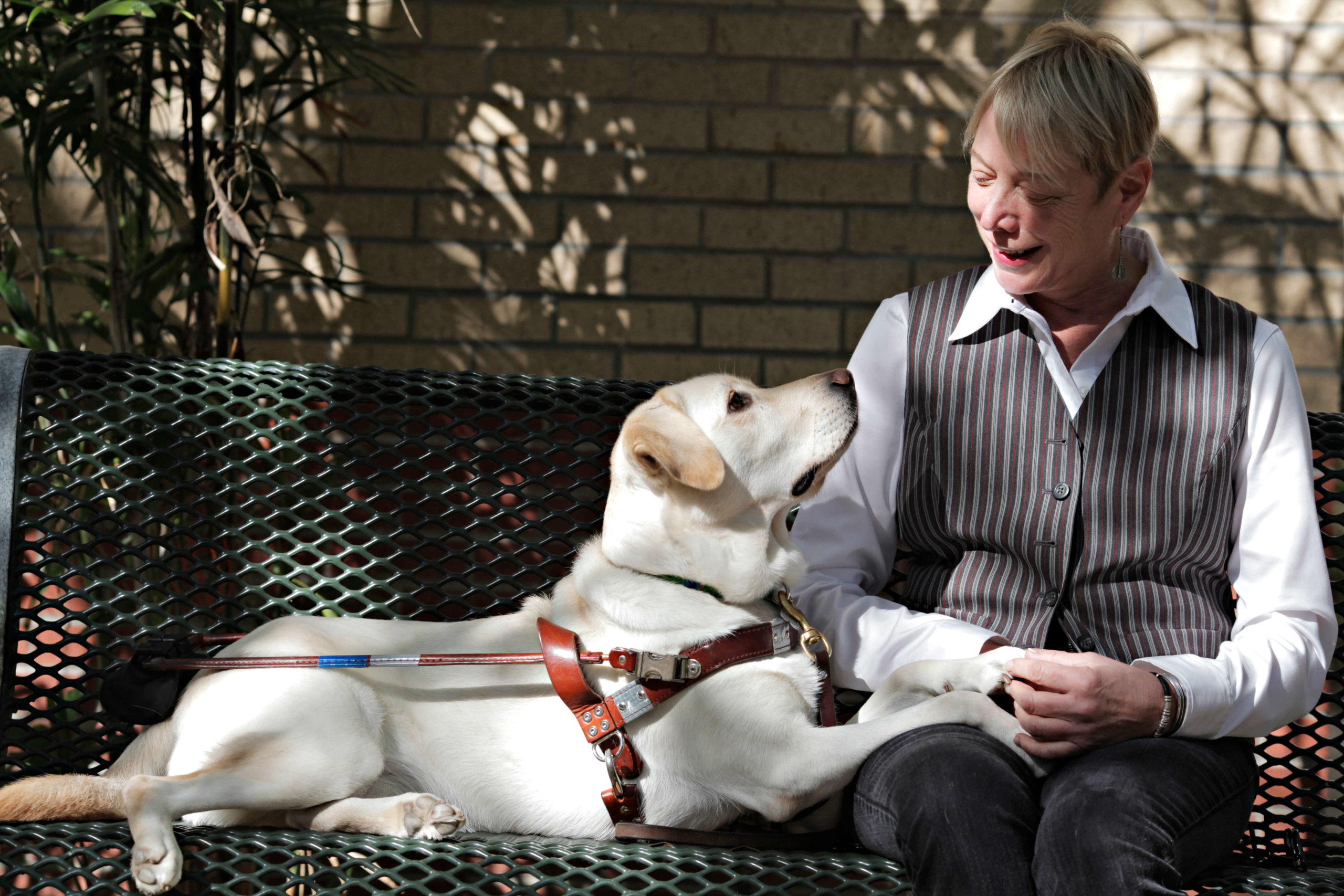Main Menu
It starts with the click of a toenail on the wood floor next to my bed. A half-hour before the alarm, Alberta starts our morning ritual, tapping in place. Then, she lets out a loud Labby yawn, a snort and a shake.
“Okay, you can come up,” I mumble through my sleep.
Light as a feather, she leaps, to wedge all 52 lbs into my arms or to collapse against me full length, stretching as long as a Labrador can go. Noses my head, slurps my chin. I wake enough to give the requested belly rub.
Alberta’s tail rapidly wags her response. “Good morning. I’m sure happy to be here with you.”
Our first year together, I fretted about all that I didn’t know of Alberta’s life before me. How did she play as a puppy? What were her favorite toys? What words of encouragement did her Guiding Eyes trainers use? Alberta’s patient puppy raisers and school trainers answered my questions as best they could. But, it never felt like enough.
Then, I realized that it was the present – not the past – that felt incomplete; I needed to focus on Alberta’s and my own language of love.
Routine and ritual reinforce connection. Alberta laps up her breakfast while my coffee is still perking. By the time I have a brewed cup in one hand, Alberta is shoving her licked-clean bowl into the other.
Our cues to one another are so subtle that colleagues ask, “How do you know?” And I have to work to remember back to Alberta’s subtle signal.
“She stopped at the down curb.”
“She pushed me out of the way when that person stepped in front of me.”
“She stepped up at the stair.”
 “I know where she is under the table because she puts her front paw on one foot and leans her body against my other leg.”
“I know where she is under the table because she puts her front paw on one foot and leans her body against my other leg.”
“She gives a strong pull on the harness so I know that she understands when I’ve asked her to take me someplace.” I begin to count all of the locations Alberta has learned in a year. To the classroom. To the office. To the bank. Let’s go home now.
This dog is a living GPS.
Alberta knows to Park before we go into the airport. It will be a long time before she has another chance to go. Otherwise, we both keep to her potty routine morning, mid-day, dinner, bedtime.
I no longer worry if I am using the same words of praise that Alberta heard in her former life. When I exclaim “Good Job!” she dances with pride. I’ve learned to not use that phrase in that tone of voice in response to any other person or dog. If I do, Alberta sulks.
I now respect our private language. When I tuck her into her own bed at night, I tell Alberta that she is the very best girl in the whole world. She nuzzles my hand to say, “You are too.”
That’s all I need to know.